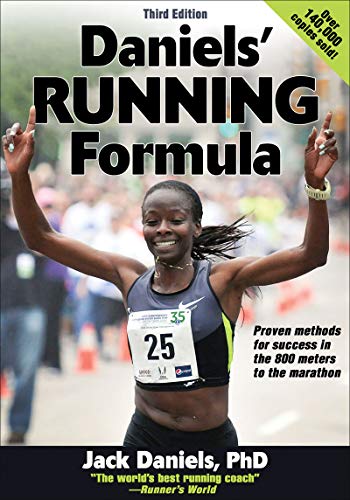(Part 2) Top products from r/Ultramarathon
We found 4 product mentions on r/Ultramarathon. We ranked the 24 resulting products by number of redditors who mentioned them. Here are the products ranked 21-40. You can also go back to the previous section.
21. Anatomy for Runners: Unlocking Your Athletic Potential for Health, Speed, and Injury Prevention
Sentiment score: 1
Number of reviews: 1
 Show Reddit reviews
Show Reddit reviews22. Daniels' Running Formula
Sentiment score: 1
Number of reviews: 1
Daniel s Running Formula 3rd Edition
 Show Reddit reviews
Show Reddit reviews23. The Ultimate Hiker's Gear Guide: Tools and Techniques to Hit the Trail
Sentiment score: 1
Number of reviews: 1
Ultimate Hiker's Gear Guide
 Show Reddit reviews
Show Reddit reviews24. Fixing Your Feet: Injury Prevention and Treatments for Athletes
Sentiment score: 0
Number of reviews: 1
When your feet hit the trail, asphalt, or ball court, they take a beating with every step. Don't wait until foot pain cramps your speed, strength, and style- learn the basics and finer points of foot care now. Foot expert and ultrarunner John Vonhof
 Show Reddit reviews
Show Reddit reviews
This all looks fine to me. HR training it super simple, you just want your heart rate in that zone. I don't think taking breaks is going to have a big impact at all.
Objectively, the best thing you can do is lose some weight so running becomes feasible. That 10 mile walk is a great idea, but it isn't really training your aerobic system.
You might also want to add in some "extra" stuff. For ultrarunning balance, strength, and coordination are all essential. There's tons of resources out there to help you build a program, but I'd recommend mixing it in now. If you can commit to it before you start running you have a really good chance of avoiding injuries.
I'll briefly go over some crosstraining basics, these are just my opinions. Most athletes are good runners, but most runners aren't good athletes. IMO this simple fact explains why 80% of runners encounter an injury sometime in their career. If you want to race ultras the safest way to do so is to start treating yourself like an athlete.
This is an ongoing process that'll follow you across your career as a runner, but stick with it and I guarantee it'll pay dividends.
One other note. Because you haven't started running yet you haven't had a chance to make the mistakes most novice runners run into. I'll list those out briefly, this is just what I've seen in myself and other runners.
Good luck!
I haven't read it, but I would check this one out: https://www.amazon.ca/Koerners-Field-Guide-Ultrarunning-Ultramarathon/dp/1937715221
I have read "Daniels' Running Formula" which is very very good: https://www.amazon.ca/Daniels-Running-Formula-3rd-Jack/dp/1450431836/ref=sr_1_sc_1?s=books&ie=UTF8&qid=1469153523&sr=1-1-spell&keywords=Daniels+runnnig
I also recommend "Advanced Marathoning" which is a better all purpose "how to be a runner" book than Daniels, but a bit less scientific.
Both have training plans for beginners. And like people mentioned: getting good quickly is easy... it's not getting hurt that is tough!
Skurka is better known as an ultralight backpacker / adventurer, so he has an interesting perspective on ultra running.
Edit: he finished at 37th place in 7:26
The definitive guide to all things foot related. NFI
Fixing Your Feet: Injury Prevention and Treatments for Athletes https://www.amazon.com/dp/0899978304/ref=cm_sw_r_cp_apa_i_IlHrDb4PJ3JXC